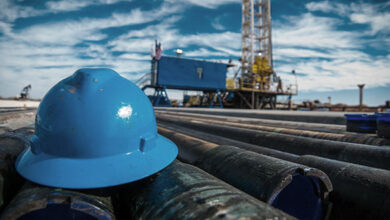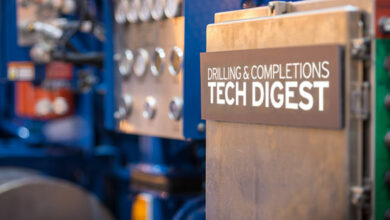Wirelines
ExxonMobil, Oceaneering recognized with Safety Leadership Awards from COS
ExxonMobil and Oceaneering each received Safety Leadership Awards from the Center for Offshore Safety (COS). The awards recognize companies for outstanding leadership in developing safety management and performance practices and projects that advance the offshore industry’s culture of safety.
ExxonMobil was honored for its Enhancing Process Safety (EPS) program, which was developed as part of a multi-year effort. The program includes identification of higher-consequence scenarios, defined ownership of critical safeguards and field-based safety and environmental management system (SEMS) assessments. EPS assessments involve in-field demonstration of the health of personnel and equipment safeguards that prevent or mitigate higher-consequence scenarios.
Oceaneering was recognized for a subsea, remotely operated vehicle system called Liberty E-ROV that the company designed and deployed. It is a self-contained, battery-powered remotely operated vehicle (ROV). The Liberty E-ROV is operated from a remote onshore location and can conduct subsea work missions for up to two months without a surface support vessel. The combination of the Liberty and an onshore remote operating center eliminates the need for vessels and personnel to travel to and from offshore, reducing exposure to high-risk environments, as well as offshore injuries and environmental incidents.
US Interior Department to update Well Control Rule
The US Interior Department has announced proposed revisions to the 2016 Well Control Rule. These revisions include:
- Requiring blowout preventer systems (BOPs) to be able to close and seal the wellbore to the well’s kick tolerance design at all times;
- Removing the option for operators to submit failure data to designated third parties and instead require the direct submission of failure data to the US Bureau of Safety and Environmental Enforcement (BSEE);
- Requiring failure analysis and investigations to start within 90 days instead of 120 days;
- Requiring independent third parties to be accredited by a qualified standards development organization;
- Specifying that surface BOPs on existing floating facilities must follow the dual shear ram requirements when replacing an entire BOP stack;
- Requiring that remotely operated vehicles be capable of opening and closing each shear ram on a BOP; and
- Requiring the operator to provide test results to BSEE within 72 hours after completion of the tests if BSEE is unable to witness testing.
The Well Control Rule was developed from recommendations from investigation teams following the 2010 Macondo incident. Members of the public may submit comment on the proposed rulemaking until 14 November.
Click here to read BSEE’s proposed revisions to the Well Control Rule.
BOEM reinstates top bids from 2021 GOM lease sale
On 14 September, the US Interior Department’s Bureau of Ocean Manage-ment (BOEM) announced reinstatement of the 307 highest valid bids from Gulf of Mexico Lease Sale 257, in accordance with congressional direction in the Inflation Reduction Act (IRA).
After months of postponement of the sale’s intended date, the lease sale was held by BOEM in November 2021, bringing in a total of $189,888,271. In February of this year, a federal judge invalidated the results of oil and gas Lease Sale 257.
In a statement, IADC said that, while BOEM’s announcement is encouraging, it continues to monitor related factors that may ultimately have an impact on its members. More specifically, IADC is currently working with members and counsel to identify how IRA provisions detailing lease sales 258, 259, 261 and other related policies may or may not be affected by ongoing litigation concerning federal oil and gas leasing.
“BOEM’s reinstatement of Lease Sale 257 Act is a positive step forward for energy production in the Gulf of Mexico, which has lacked new oil and gas leases for almost two years. With the region being responsible for over 15% of all US oil production, the importance of holding robust and timely offshore lease sales cannot be understated. As nations around the world experience rising energy costs and heightened geopolitical tensions, development of all forms of energy in the Gulf will be critical to ensuring lasting energy security for the US and its global partners,” said IADC President Jason McFarland.
API comments on proposed US offshore leasing program
API submitted comments in early October urging the US Interior Department to open offshore acreage to development.
Responding to the 2023-2028 National Outer Continental Shelf Oil and Gas Leasing Proposed Program and Draft Programmatic Environmental Impact Statement, API highlighted the importance of offshore leasing to US economic strength and energy security. It also called on the Interior Department to uphold its statutory responsibility to take current and future energy needs into account by promptly issuing a final program that includes 11 lease sales.
In the comments, API expressed concern over the proposed program’s option to issue a final program with zero lease sales, which would jeopardize domestic production and weaken American energy security.
According to a recent study conducted by API and the National Ocean Industries Association, a two-year lapse in federal offshore leasing could lead to a drop in production of nearly 500,000 bbl/day, cost nearly 60,000 American jobs and sacrifice billions in lost state and local revenues by 2040.




